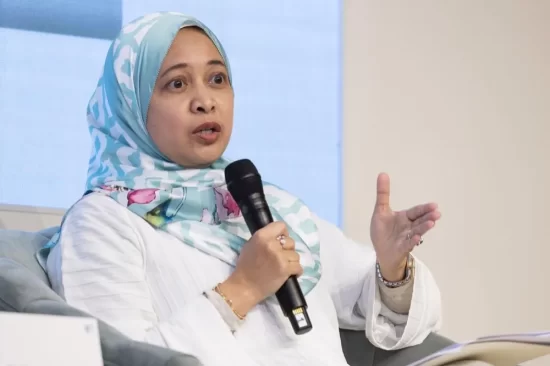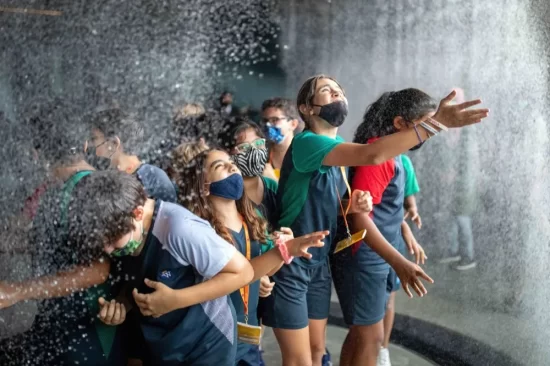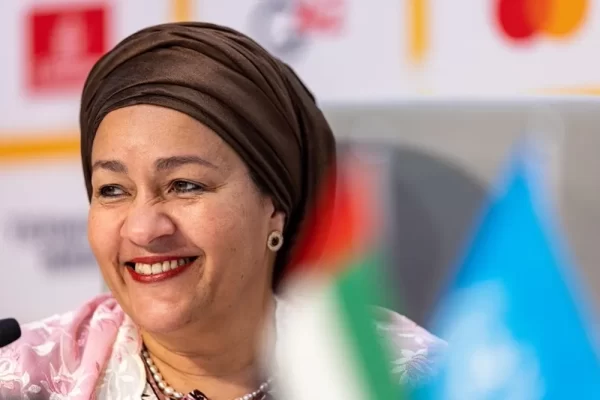Islam’s rich heritage and values, including the importance of education and the value of building a just society, are key to inspiring the region to develop a sustainable, equitable and thriving society, panellists said on Thursday (20 January).
Exploring key questions of gender equality, social development and the need to build a thriving community within Islam, the discussion, ‘Women in Arabia and Islam: How Islam inspires sustainable development in the region and the world’, looked at the links between Islam and sustainable development, and how women in Islam have played a catalytic role in ensuring gender equality.
Maher Nasser, UN Commissioner General Expo 2020 Dubai and Director of the Outreach Division, UN Department of Global Communications, said in his opening remarks: “Being in a country and region where Islam is the main religion, its values and tenants can be a source of inspiration to achieve sustainable development. From government level to the corporate space and the civil society, financial services to solving social issues, Islamic inspiration can help achieve the Global Goals in the Arab region and worldwide.”
The panel took place at Expo 2020 Dubai’s Women’s Pavilion and was part of Global Goals Week, the latest of Expo’s 10 Theme Weeks, held under its Programme for People and Planet, and serving as a platform for world leaders and change-makers to connect and work towards achieving the Sustainable Development Goals (SDGs).
The panel kicked off with an opening statement by HE Omar Ghobash, UAE Assistant Minister for Cultural Diplomacy. He argued that while Islam at its core contains the necessary guiding principles – in finance, climate change, gender or social equality – to help build sustainable communities, Muslims today have a duty to continue to bolster Islam as a rights-based religion, searching for equality and justice within the Muslim legal tradition, rather than adhering to these ideas as concepts. This becomes especially important as a way forward to build peaceful and inclusive societies, rather than resting on past laurels from when Islam provided a visionary future and built the most progressive societal structures of its time.
This perspective was echoed by Huda Jawad, Co-Director, Musawah, who tackles the issue of gender equality and women’s empowerment by promoting women’s roles in producing religious knowledge and unpacking issues of women’s rights and equality from within Islamic legal traditions.
Jawaher Almheiri, Head of Asian Economic Affairs at the UAE Ministry of Foreign Affairs and International Cooperation, said: “The Sustainable Development Goals are aligned with the core Islamic principles and values – a concept that has existed in Islam for centuries.”
Almheiri, who features on the Forbes 2021 30 under 30 list of impactful people, added: “The Islamic perspective embraces that everything on Earth is created for humanity, and unnecessary destruction of natural resources is prohibited in Islam. Muslims are religiously bound that all human activity should support social uplift and protect people’s rights, and it shows that ultimately we are working towards the same agenda.”
Dr Jemilah Mahmood, Director of Sunway Centre, spoke of the first nurse in Islam’s history, Rufaidah Al Aslamiyah, who worked alongside The Prophet Muhammad (pbuh), as an example of the religion’s gender equality, and stressed the importance of how Islam inspires individuals to work collectively in humanitarian response.
“There is immense richness in Islam, and it dictates us to do good work, not only in our history but our jurisprudence and theology. In fact, Islam encourages protection of the environment and instructs us to protect women,” she said.
Running from 15-22 January, Expo 2020’s Global Goals Week, held in association with the United Nations, aims to drive progress on the achievement of the Global Goals by 2030.























